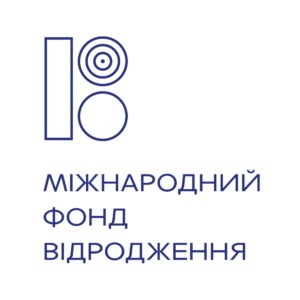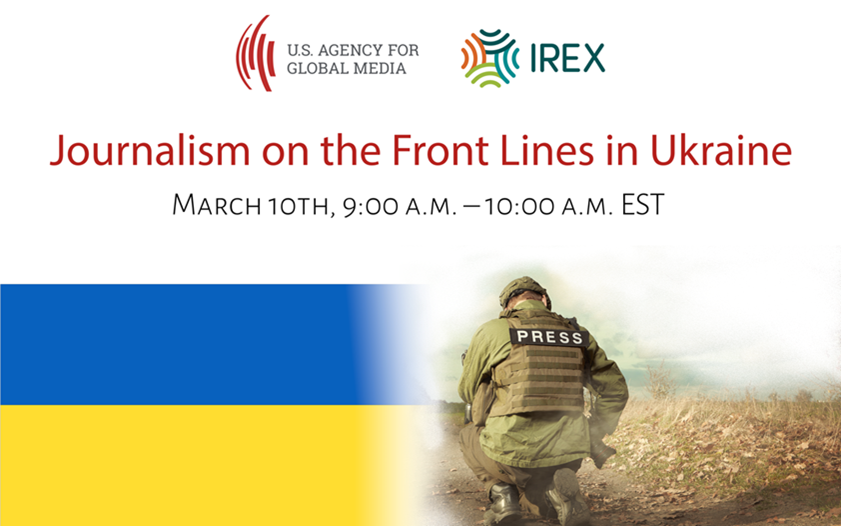Vladimir Putin’s hatred of my homeland is fueled by Ukraine’s decision to pull away from the Soviet model and go in a completely different direction, says Oleksandr Sushko, executive director of Ukraine’s International Renaissance Foundation.
Russia is built on hierarchy and subordination to a strong central power. Ukraine has a legacy of self-determination, and has chosen the path to a democratic, pluralistic open society. We are not there yet, but we are on the road. We won’t be subjugated. And Putin can’t stand that, he writes for the Open Society Foundations, which has announced an initial $25 million investment in launching the Ukraine Democracy Fund.
Can the West establish a new Arsenal of Democracy for Ukraine?

For the sake of its own security, the security of all of the democracies, and the values of liberty it holds dear, Congress needs to rapidly enact a comprehensive lend-lease bill for Ukraine [as advocated by Alexander Vindman and Dominic Cruz Bustillos] and encourage its key allies to do the same, says Dr. Alan Riley, a Senior Fellow with the Atlantic Council.
We should not underestimate the renewed threat to the democratic world of 2022, he writes for the Center for European Policy Analysis. Both Presidents Putin and Xi menace our democracies, our common values, and our belief in liberty under the law. Once again the arsenal of democracy needs to come to life, belching (virtual) smoke from its carbon-neutral chimneys to ensure that dictatorship does not prevail, and its own security is not threatened.
Democracy’s peacetime defenders should closely examine the tactics Ukraine has employed on its messaging battlefield—and add them to their arsenal, David Litt, a former speechwriter for President Barack Obama and publisher of How Democracy Lives, writes for The Atlantic:
- First, where Russian propaganda has focused on abstract concepts—accusations of NATO puppetry, Orwellian calls to “denazify” Ukraine—Ukrainian messaging has focused on people.… It’s hard to imagine many people remaining unmoved by an old woman heaping verbal abuse on armed invaders; a defiantly jubilant platoon of dad-bods “tankjacking” a Russian armed vehicle; or a mom spitting out an acidic “Thank you” to Putin for burning her house to the ground as her daughter wipes away tears….
 Second, Ukraine’s messaging has prioritized actions over words. ….Ukrainian leaders and soldiers clearly understand the power of demonstration and example, and they are using it consciously and effectively: President Volodymyr Zelensky’s courageous videos from the streets of Kyiv; celebrities not just endorsing their country’s cause but donning fatigues and fighting for it…
Second, Ukraine’s messaging has prioritized actions over words. ….Ukrainian leaders and soldiers clearly understand the power of demonstration and example, and they are using it consciously and effectively: President Volodymyr Zelensky’s courageous videos from the streets of Kyiv; celebrities not just endorsing their country’s cause but donning fatigues and fighting for it…- Third, Ukrainians aren’t just condemning their enemies; they’re putting pressure on allies who they think aren’t doing enough. … When Coca-Cola refused to shut down its Russian operations, the official Twitter account of Ukraine scolded the world’s third-largest beverage company and invited Pepsi to “counterattack.” …..
- Finally, Ukrainians are treating ordinary Russians as natural allies, not their enemies. Before the invasion began, Zelensky’s speech to the Russian people appealed to their common culture and heritage. The Ukrainian military has invited Russian mothers to collect their sons who were taken prisoner. RTWT
 “Among the civil society of Ukraine, there are a lot of brave women who take responsibilities on their own shoulders. We are ready to fight for our country, for freedom and human dignity. And in this fight, in this battle, we will fight for the values of the free world,” says Oleksandra Matviychuk (see video above) who heads the Center for Civil Liberties, a National Endowment for Democracy (NED) grantee.
“Among the civil society of Ukraine, there are a lot of brave women who take responsibilities on their own shoulders. We are ready to fight for our country, for freedom and human dignity. And in this fight, in this battle, we will fight for the values of the free world,” says Oleksandra Matviychuk (see video above) who heads the Center for Civil Liberties, a National Endowment for Democracy (NED) grantee.
“We not only have to have a plan on how we will help victims of armed conflict, but we have to elaborate plans and ambitions to stop this war in our region,” she adds.
“Because if we do not do it, we will have hundreds and hundreds of fires, which will emerge every day. We have to elaborate a complex strategy towards Russia, which helps us as a country who believes in freedom, democracy, and the rule of law to repair this wrong wiring in our region,” said Matviychuk, who coordinates the Euromaidan SOS civic initiative.
 What are the immediate and long-term needs of Ukrainian journalists on the ground? How must journalists adapt to reporting in a conflict? How can we best support journalists on the front lines and in occupied territory? To address these and other questions USAGM and IREX, are convening a panel of media experts to discuss Journalism on the Front Lines in Ukraine.
What are the immediate and long-term needs of Ukrainian journalists on the ground? How must journalists adapt to reporting in a conflict? How can we best support journalists on the front lines and in occupied territory? To address these and other questions USAGM and IREX, are convening a panel of media experts to discuss Journalism on the Front Lines in Ukraine.
Panelists: Jamie Dettmer, the Voice of America foreign and war correspondent in Ukraine. Maryana Drach, Director of the RFE/RL Ukrainian Service. Heather Murdock, VOA Foreign Correspondent who just emerged from Ukraine after her coverage in-country before the invasion and in the initial days of the war. Maria Ordzhonikidze, Director of the Justice for Journalists Foundation, a London, UK-based NGO whose mission is to fight impunity for attacks against media. Mykhaylo Shtekel, Correspondent in Odesa for RFE/RL’s Ukrainian Service since 2017. Moderator: James Brooke, former VOA Bureau Chief in Moscow and Ukraine, Editor in Chief of Ukraine Business News, and currently Ukraine/Russia fellow for the Foundation for Defense of Democracies. REGISTER HERE.
Democracy’s peacetime defenders should borrow the tactics Ukraine has deployed in wartime, such as a focus on the personal over the abstract & action rather than words, @davidlitt writes for @TheAtlantic https://t.co/uzSnTRScYK
— Democracy Digest (@demdigest) March 8, 2022







